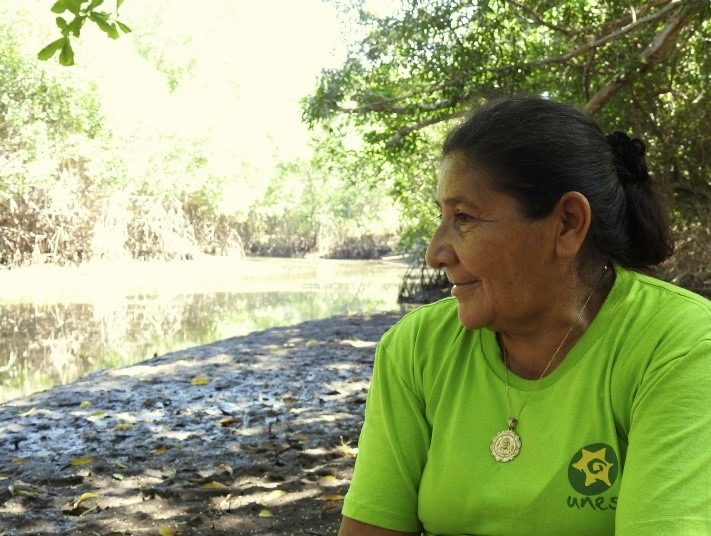An innovative community-led governance model for mangroves
Written By: Evelyn Vargas Carmona, IUCN Regional Coastal Biodiversity Project IUCN / GOAL – USAID
People in western El Salvador have organized themselves into a unique mangrove governance model, known as a Local Sustainable Harvest Plan (PLAS), a management approach that has been receiving international attention.
They run organized activities including daily mangrove surveillance, reforestation campaigns, maintenance of internal canals, waste collection campaigns, and even species relocation after extreme weather events. Additionally, they’ve created seasonal fishing closed periods and have also defined family quotas for permitted extraction.
The Association was a response—by all the community groups in the Barra de Santiago region—to the degradation of the mangroves, the impact of extreme climatic events and the excessive extraction of natural resources.
The Regional Coastal Biodiversity Project—funded by USAID and headed by IUCN and local implementing partners—has provided further support since 2018. They’ve helped generate sustainable alternative activities in biocommerce—including honey production from the mangroves—in an attempt to reduce pressure on the mangrove ecosystem.

Teresita de Jesús García, El Salvador
Pia Hernandez, Evelyn Vargas Carmona, IUCN
Teresita de Jesús García is President of the Local Sustainable Harvest Plan (PLAS) Group of Playa Metalío, in the Barra de Santiago area, western El Salvador. Her group plays a key role in regulating the use of mangrove resources and for monitoring compliance.